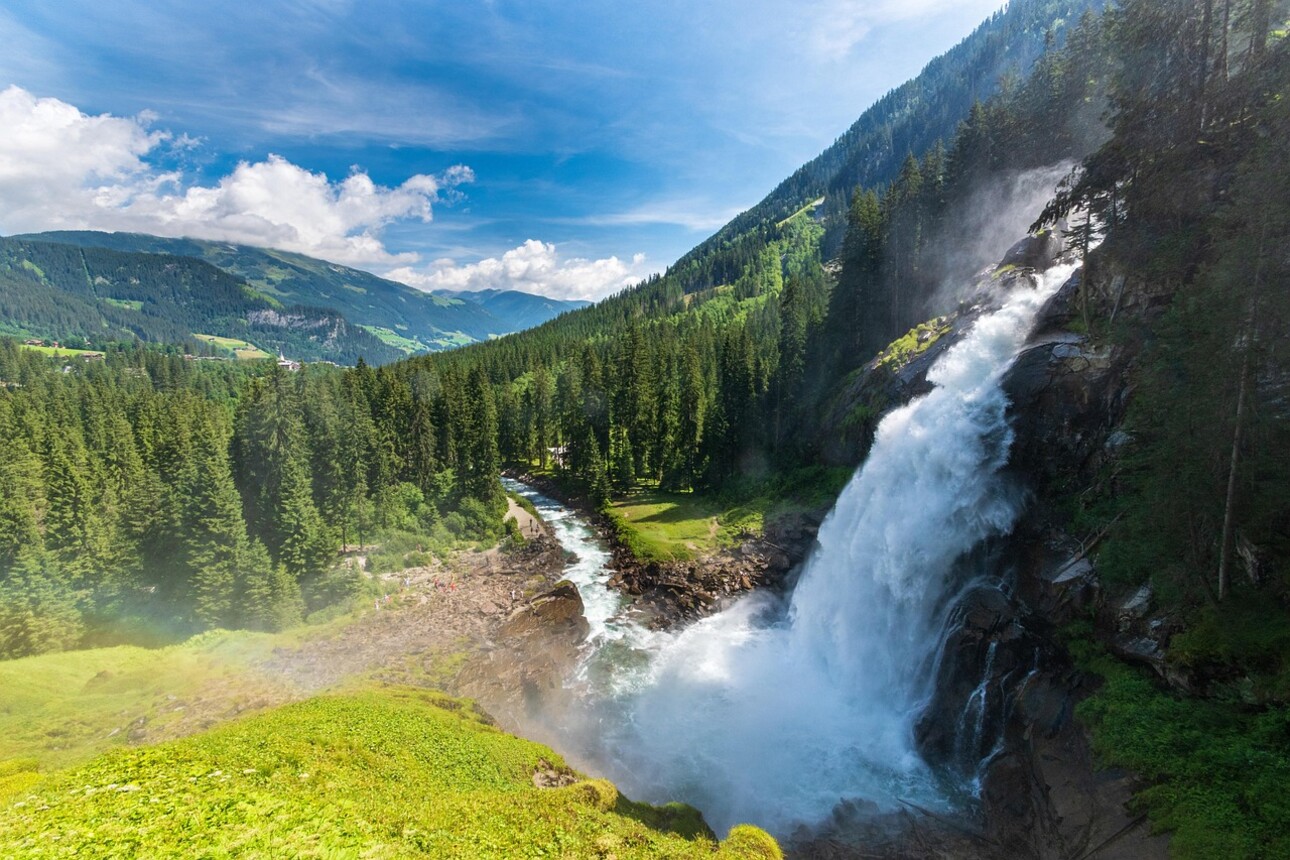
Choosing between the countryside, the city, the sea or the mountains in France means choosing your way of life, your natural environment, your culture and your heritage. Each area has its own specific characteristics, adapted to different expectations in terms of quality of life, activities and social links.
Mountains in France, from the Vosges to the Alps, from the Jura massif to the Mont Blanc massif, are synonymous with height, positive relief and a wide variety of landscapes. The country's highest peak is Mont Blanc, at 4,808 metres, a UNESCO World Heritage Site. The Alpine mountain range offers a wide range of activities: skiing, ski touring, hiking, mountaineering, climbing, canyoning, trekking, etc. The flora of the Alpine massif, the presence of freshwater lakes, the diversity of the alpine and sub-alpine levels, all combine to make the mountains a place of discovery and rejuvenation.
The high mountains, with their passes, peaks, valleys and villages, attract large numbers of visitors and permanent residents every year. Mountain resorts such as Chamonix and Les Gets are renowned for their tourist attractions and their natural and cultural heritage. To prepare for a trip to the mountains, you need to take a few precautions: check the weather forecast, watch out for the risk of avalanches, and read the snow height readings. For more information, guides and advice are available on the Alpesvente blog, for example.
The French countryside, from the Massif Central to the Mont Ventoux valley, is a vast area, rich in heritage and history. Here, rural life is organised around villages, natural landscapes, plateaux and gentle slopes. The air is pure, the space abundant and the pace calm. The French countryside offers a wide variety of landscapes, from agricultural plains to volcanic relief, such as the shield volcano of Puy de Dôme or the ancient volcanoes of the Puys chain. To find out more about the advantages and disadvantages of this lifestyle, consult Seloger.
As the centre of social, economic and cultural life, the town attracts a large number of residents. They offer a wide range of services and a high concentration of historical heritage, particularly from the Middle Ages to the 20th century. But city life can also generate urban stress, a negative impact on mental health in the city, pollution and overcrowding. The quality of urban life therefore depends very much on managing nuisance and preserving natural spaces.
Finally, the sea is synonymous with relaxation, water sports and open landscapes. France's coasts are renowned for their diversity, natural heritage, maritime culture and tourist attractions.
| Living environment | Highlights | Weak points |
| Mountains | Fresh air, landscapes, activities, natural heritage, high altitude, great variety | Sometimes difficult access, harsh climate, natural hazards |
| Campaigns | Authenticity, space, rural heritage, fresh air, quiet life | Limited services, possible isolation |
| City | Culture, dynamism, services, historical heritage | Stress urbain, pollution, saturation |
| Sea | Well-being, activities, landscapes, tourism | Expensive property, seasonality, climatic risks |
Choosing between the countryside, the city, the sea or the mountains in France means choosing a territory, a culture, an altitude and a way of life. The mountains offer a high altitude, a wide variety of relief, an exceptional natural heritage and year-round sporting activities. Whatever your choice, France offers many of the most beautiful living environments in the world.